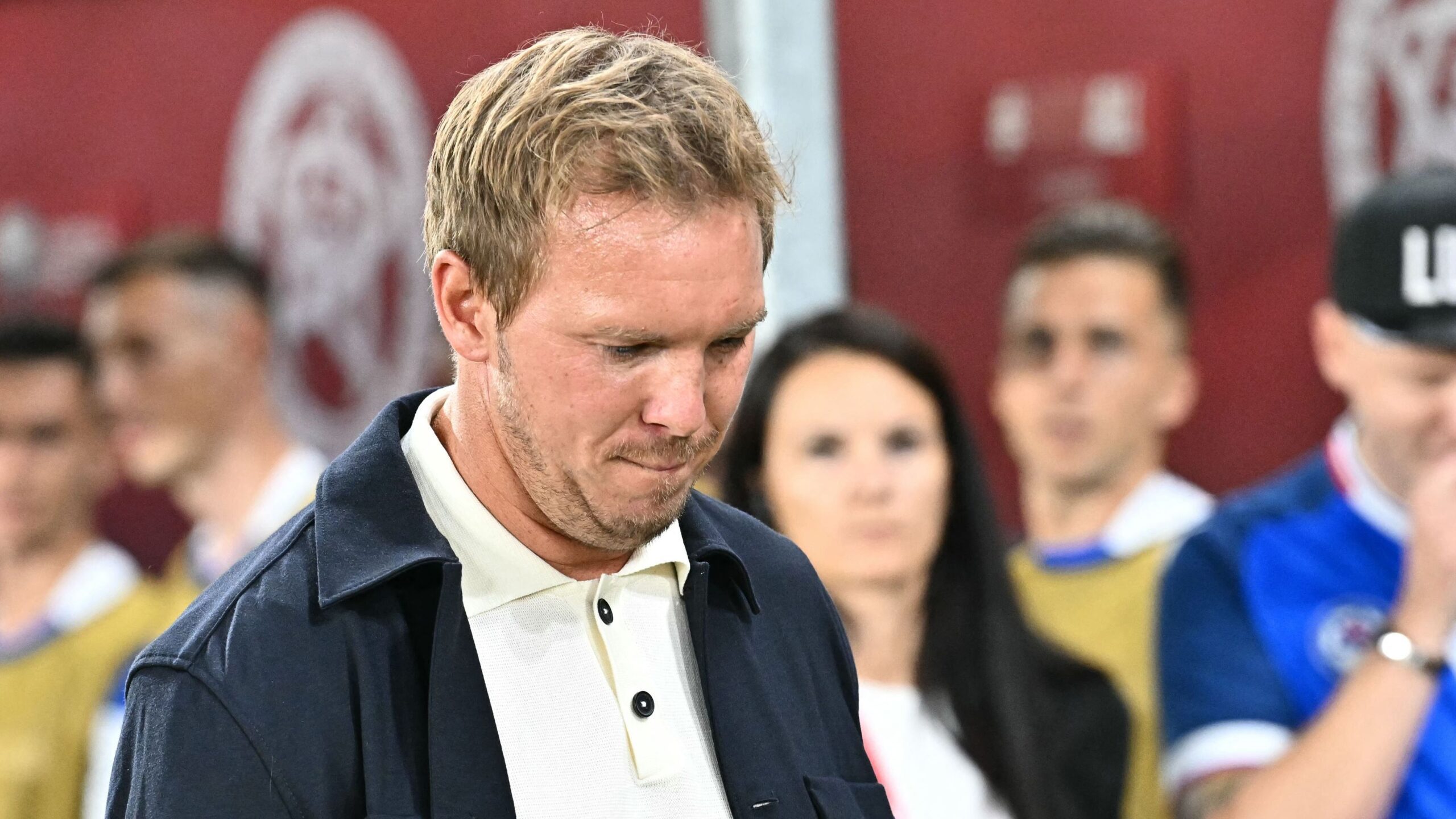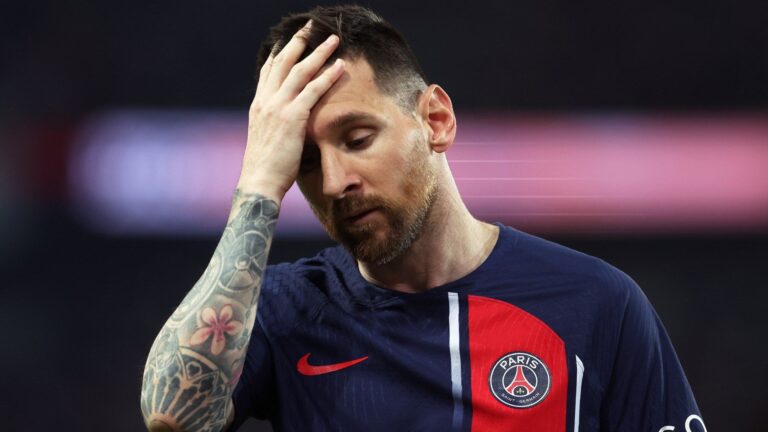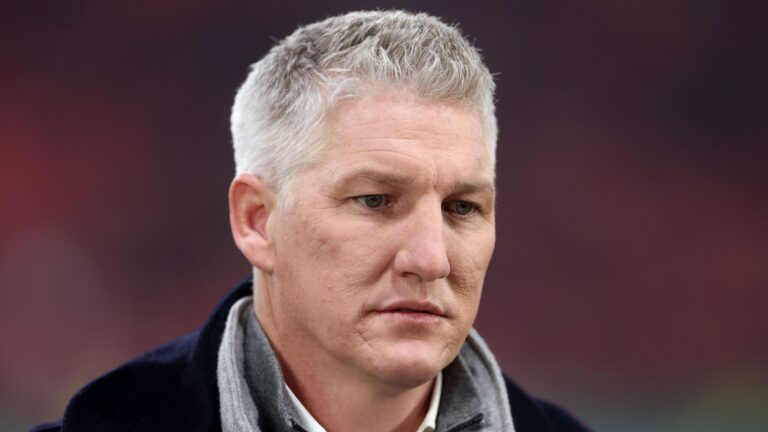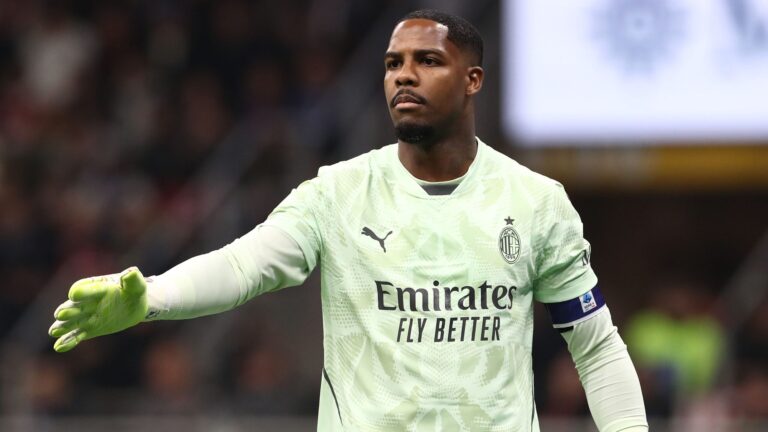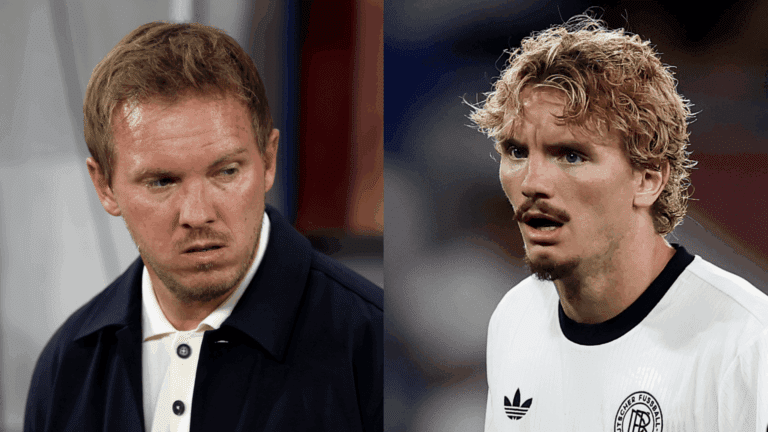- Germany lose 2-0 to Slovakia in World Cup qualifier opener
- Nagelsmann questions reliance on “quality” over intensity
- Germany sit bottom of Group A with five games left



Why Germany’s World Cup Qualification Hangs by a Thread After Slovakia’s Upset
In a stunning turn of events that has left Germany fans reeling, the team suffered a humiliating 2-0 loss to Slovakia in their initial 2026 World Cup qualifier. This defeat highlights ongoing struggles in intensity and mental drive, as coach Julian Nagelsmann reflects on his choices, emphasizing the need for more grit over pure talent. With recent updates showing Germany languishing at the bottom of Group A, the pressure mounts for the remaining matches, including a crucial game against Northern Ireland, who currently lead the standings.
Germany’s Unexpected Setback in the 2026 World Cup Race
Slovakia pulled off an impressive win against Germany, clinching a 2-0 victory thanks to goals by David Hancko and David Strelec. Even though Germany controlled the ball for 70% of the game, they only managed four shots on goal, while Slovakia was more effective with five. This loss marks Germany’s first-ever away defeat in a World Cup qualifying match, immediately complicating their path to direct qualification and forcing them to rethink their approach.
The Coach’s Harsh Evaluation of Team Performance
Following the match, Nagelsmann openly criticized his squad’s lack of energy and passion. He pointed out that Slovakia far outshone them in terms of vigor on the field, noting that sometimes raw determination trumps technical skill. Drawing from past tournaments, such as the Qatar World Cup and the European Championship, where similar issues arose, Nagelsmann suggested that without this fiery spirit, elite talent alone won’t suffice for success.
Shifting Focus from Skill to Determination
In his post-game remarks to ARD, Nagelsmann elaborated: “When it comes to basic elements like passion, the other team was leaps ahead of us-it’s undeniable. What’s more alarming is that they also demonstrated superior play on the pitch. If we keep falling short in this area-as we’ve seen before in key games-then talent becomes irrelevant.” He went on to say that the team was nowhere near competitive that day, lacking the edge needed to compete at the highest level.
Potential Changes in Team Selection and Strategy
Nagelsmann hinted at a possible overhaul, stating: “Perhaps we should prioritize players who pour everything into the game rather than just the most skilled ones, as that might have changed the outcome today.” With only five qualifiers remaining, he stressed the necessity of winning them all to avoid the play-offs in March 2026. Recent reports indicate that Northern Ireland, now at the top after the first round, will be a tough opponent, adding urgency to Germany’s need for a turnaround in mentality and tactics.
The Historic Defeat: Germany vs. Slovakia Breakdown
In a stunning turn of events, Germany suffered a significant defeat against Slovakia in what has been labeled a historic low for the national team. This match highlighted vulnerabilities in Germany’s strategy under coach Julian Nagelsmann, who has openly expressed regrets about his approach. For fans and analysts tracking Germany’s performance in international competitions, this loss raises questions about balancing player talent with sheer determination on the field.
The game, part of the UEFA Nations League, saw Slovakia dominate with a final score that left Germany trailing by multiple goals. Slovakia’s aggressive play and relentless energy exposed gaps in Germany’s defense and midfield, leading to what many are calling an embarrassing outing for the four-time World Cup champions. Key players from Germany struggled to find their rhythm, contributing to a performance that fell short of expectations in this high-stakes fixture.
Key Moments from the Match
Several pivotal moments defined the game’s outcome. Early in the first half, Slovakia capitalized on a counterattack, scoring their first goal through precise passing and quick decision-making. Germany’s attempts to regain control were hampered by unforced errors, including misplaced passes and poor positioning.
- Slovakia’s midfield dominance: Players like Ondrej Duda and Juraj Kucka exemplified the kind of all-out effort that Nagelsmann later lamented missing in his squad.
- Germany’s missed opportunities: Star forwards failed to convert chances, underscoring a lack of clinical finishing under pressure.
- Defensive lapses: A late goal in the second half sealed Slovakia’s victory, with Germany’s backline appearing disorganized and fatigued.
This defeat marks one of the lowest points in recent Germany vs. Slovakia encounters, prompting widespread analysis in sports media and among football enthusiasts.
Julian Nagelsmann’s Reflections on the Loss
Julian Nagelsmann, known for his tactical innovations, admitted post-match that his focus on “quality” players might have been a misstep. In comments to the press, he emphasized the value of selecting team members who “give their all,” regardless of their star status. Nagelsmann’s strategy had leaned heavily on high-profile talents from top clubs, but this approach didn’t translate to on-field success against a motivated Slovakian side.
Nagelsmann’s regret stems from overlooking players with high work rates and defensive tenacity. He noted, “Sometimes, pure quality isn’t enough if the heart and hustle aren’t there.” This introspection could signal a shift in how he builds the team for future matches, such as upcoming qualifiers and tournaments.
Analyzing Nagelsmann’s Tactical Choices
Digging deeper, Nagelsmann’s preference for “quality” often means prioritizing technical skill and experience from elite leagues. However, in this case, it led to a lack of balance, with the team appearing disjointed. Slovakia’s players, many from domestic leagues, brought an element of unpredictability and effort that disrupted Germany’s game plan.
Experts in football analysis point out that such mismatches happen when coaches overemphasize star power. For instance, data from performance metrics shows Slovakia had higher pressing intensity and more tackles won, which directly contributed to their win.
Lessons Learned: Why Team Spirit Trumps Talent Alone
This defeat offers valuable lessons for coaches, players, and even amateur teams worldwide. In football, as in many team sports, prioritizing players who “give their all” can create a more resilient unit. Case studies from past tournaments illustrate how underdogs succeed through sheer determination.
One notable case study is Leicester City’s unexpected Premier League win in 2016. Despite lacking “quality” superstars, their focus on collective effort and defensive solidity led to glory. Similarly, in the 2018 World Cup, Croatia reached the final by emphasizing players who consistently gave 100%, outlasting more talented teams.
From a practical standpoint, here are some tips for managers and coaches to avoid similar pitfalls:
- Assess player commitment: Use training sessions to evaluate not just skills, but also energy levels and willingness to fight for every ball.
- Balance the squad: Mix star players with those who excel in roles like pressing or tracking back, ensuring a well-rounded team dynamic.
- Foster team chemistry: Regular team-building activities can boost morale and encourage a “give their all” mentality, as seen in successful squads like Spain‘s 2010 World Cup winners.
- Monitor performance metrics: Track stats like distance run and tackles to identify players who bring intangible qualities to the game.
Applying these tips could help teams like Germany’s avoid historic defeats and build more sustainable success.
First-Hand Experiences from Fans and Players
Fans of the German national team shared their reactions on social media, with many expressing disappointment but also optimism for change. One supporter tweeted, “Seeing Slovakia’s heart on the pitch made me realize Nagelsmann needs to pick players who fight like that.” From a player’s perspective, anonymous sources in sports reports mentioned that some squad members felt the team’s over-reliance on big names created complacency.
In interviews, former players like Thomas Müller reflected on their own careers, emphasizing how giving 110% in every game was key to Germany’s past victories. These first-hand insights highlight the emotional and psychological aspects of football, reminding us that defeats like this one can be turning points for growth.
Overall, this event underscores the importance of holistic team selection in football strategy, blending Julian Nagelsmann’s regrets with broader lessons for the sport.


